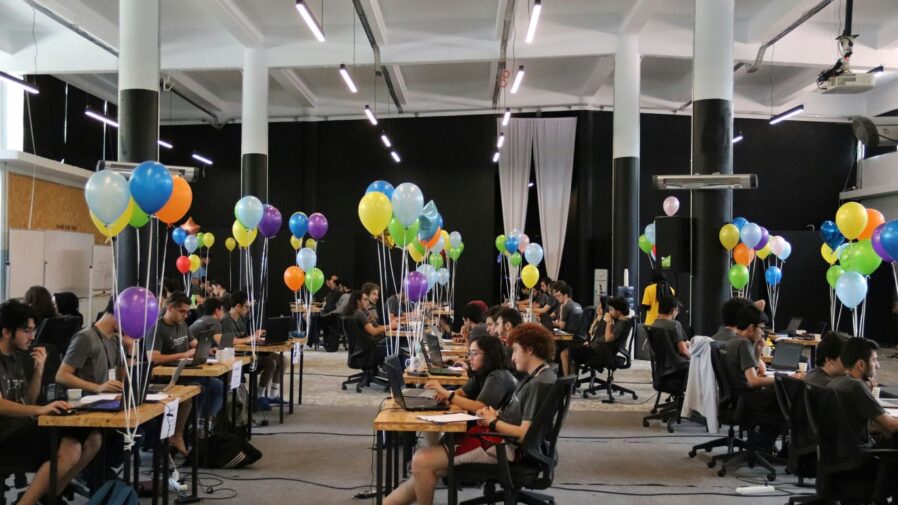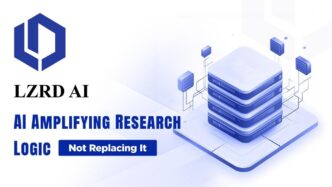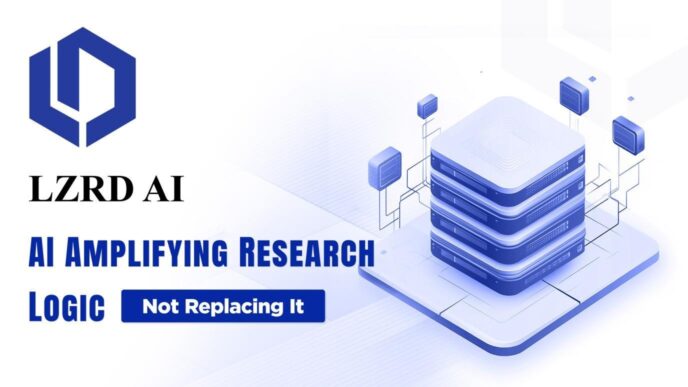So, I checked out what happened at TechCrunch Disrupt 2024, and wow, there was a lot going on. It feels like every other conversation was about AI, which makes sense, but it wasn’t just that. There were also talks about new tech, how startups are doing, and even how we all work now. It’s a big event, and it gives you a good idea of where things are headed in the tech world.
Key Takeaways
- AI is everywhere, and people are talking about how it’s changing jobs and the economy. There’s also a lot of thought going into making sure AI is used responsibly and ethically.
- New technologies like climate tech and health tech are getting a lot of attention. Plus, things like Web3 and decentralized finance are still on people’s minds.
- The startup scene is still buzzing, with lots of new companies showing off their ideas. Investors seem interested, but they’re also being a bit careful about where they put their money.
- How and where we work is changing. Companies are figuring out how to handle remote and hybrid setups, and there are new tools to help people stay productive.
- Beyond AI, space tech is looking like the next big area for new ideas and investment, showing that we’re always looking for what’s next.
AI Dominates Discussions at TC Disrupt 2024
The Pervasive Influence of Artificial Intelligence
It’s pretty clear that artificial intelligence was the main event at TechCrunch Disrupt 2024. You couldn’t walk through the halls or sit in on a session without AI coming up. It felt like every conversation, every demo, and every pitch had some connection to AI. We heard from big names in the field, and they talked about how AI is really starting to weave itself into the fabric of how businesses operate, from healthcare to finance. It’s not just a futuristic idea anymore; it’s here, and it’s changing things fast.
AI Regulation and Ethical Considerations
Beyond just the tech itself, a huge chunk of the talk was about how we should manage AI. People are thinking hard about the rules and the right way to use these powerful tools. It’s not enough for AI to be smart; it needs to be fair and safe. This is a big deal because, as one speaker put it, we need to make sure AI is developed with care and compassion. It’s about building trust, and that means being upfront about how AI works and making sure it doesn’t cause harm. We saw a lot of focus on making sure AI systems are transparent and accountable.
AI’s Role in Economic Abundance
There was a lot of optimism about what AI could do for the economy. Some experts believe AI could really boost global GDP growth, potentially making things more affordable and accessible for everyone. The idea is that AI can help us do more with less, freeing up resources and creating new opportunities. This potential for abundance means we need to think about how to share these benefits widely. It’s a vision where AI augments human abilities, making services like healthcare or engineering more available to more people. It’s a hopeful outlook, suggesting that the benefits of AI can outweigh the challenges, especially if we manage its development thoughtfully. For instance, the advancements in space travel, like those being made by companies aiming for space tourism, show how innovation can open up entirely new economic avenues, and AI is expected to play a role in many such future developments new spaceship.
Emerging Technologies Shaping the Future
TechCrunch Disrupt 2024 really put a spotlight on a few areas that are set to change how we live and work. It wasn’t just about incremental updates; these were big shifts.
The Rise of Climate Tech and Sustainability
This was a huge theme. Lots of talk about how technology can actually help us deal with climate change. We saw companies working on everything from better ways to capture carbon to new ideas for renewable energy. It feels like investors are finally taking this seriously, putting money into ventures that aim for both profit and a healthier planet. It’s not just about being green anymore; it’s about smart business too. The focus is clearly shifting towards solutions that are both environmentally sound and economically viable.
Decentralized Finance and Web3 Momentum
Decentralized finance, or DeFi, and the whole Web3 concept are still gaining steam. The idea is to move away from big, central companies controlling our money and data. Blockchain technology is at the heart of this, offering new ways to manage assets and information without needing a middleman. It’s a complex area, but the potential to disrupt traditional finance is pretty significant. People are exploring how this can create more open systems for everyone.
Advancements in Health Tech Accessibility
Healthcare is another sector where tech is making big waves, especially in making things more accessible. The pandemic really kicked things into high gear for telemedicine and remote patient monitoring. Now, we’re seeing AI being used for diagnostics, which could really speed things up and make expert medical advice available to more people, no matter where they are. It’s about using technology to bring healthcare closer to home and make it more personal. Padmasree Warrior, CTO of Cisco, has spoken about the critical need for enhanced security systems as these technologies become more integrated into our lives.
Innovation in the Startup Ecosystem

Startup Battlefield Showcases Cutting-Edge Ventures
The Startup Battlefield at TechCrunch Disrupt 2024 was a real highlight, showing off a ton of new companies trying to solve big problems. It’s always interesting to see what founders are working on, and this year was no different. We saw everything from AI-powered tools to new approaches in climate tech. The energy in the room was palpable, with founders pitching their hearts out. It’s a good reminder that even with all the big players, there’s still so much room for new ideas to take hold.
Global Startup Ecosystems Gaining Traction
It’s clear that innovation isn’t just happening in a few places anymore. Startups from all over the world are making their mark. We heard from founders and investors talking about how regions like Southeast Asia, Africa, and Latin America are becoming major hubs for new tech. This global spread means more diverse perspectives are coming into play, which is great for pushing technology forward in different ways. It’s not just about Silicon Valley anymore; the whole world is building.
Investor Insights and Cautious Optimism
When it comes to funding, investors seemed to be feeling a mix of excitement and carefulness. While there’s definitely interest in new technologies, especially AI, the focus seems to be shifting. People are talking more about building businesses that can actually last and be profitable, not just grow super fast no matter what. It feels like investors are looking for solid plans and clear paths to making money, which is probably a good thing for the long-term health of the startup world. They want to see founders who really know their market and have the data to back up their confidence. It’s less about a flashy pitch and more about a convincing story backed by facts.
The Evolving Landscape of Work

Adapting to Hybrid and Remote Work Models
It’s pretty clear now that the way we work has changed, and it’s not going back. TechCrunch Disrupt 2024 really hammered home how companies are still figuring out the best ways to handle hybrid and remote setups. It’s not just about letting people work from home anymore; it’s about making sure everyone feels connected and productive, no matter where they are. We saw a lot of new tools and strategies being talked about, all aimed at making these flexible arrangements actually work well for businesses and their employees. This isn’t just a trend; it feels like a permanent shift in how we approach our jobs.
Tools for Enhanced Productivity and Collaboration
With more people working apart, the need for good collaboration tools is huge. Disrupt 2024 showcased a bunch of startups focused on this. They’re building software that helps teams stay in sync, share information easily, and just generally get more done. Think smarter project management, better communication platforms, and ways to keep everyone on the same page without constant meetings. The goal is to make remote and hybrid work as effective, if not more so, than being in the same office. It’s all about giving people the right tech to do their best work, wherever they happen to be. It’s interesting to see how these tools are trying to replicate some of the spontaneous interactions you get in person, like quick chats at the coffee machine, but digitally. We’re seeing advancements in areas like AI-powered assistants that can help manage schedules and even summarize meetings, which could really change how we spend our workdays. It’s a big step towards making distributed teams truly efficient and connected, and you can find more on how technology is changing work at Google’s driverless cars.
Here’s a quick look at what’s important for these new work models:
- Connectivity: Making sure everyone can access the tools and information they need, reliably.
- Communication: Platforms that allow for clear, efficient, and varied ways to talk to each other.
- Culture: Building a sense of team and belonging, even when people aren’t physically together.
- Flexibility: Allowing people to work when and where they are most productive, within reasonable guidelines.
New Frontiers in Technological Exploration
TechCrunch Disrupt 2024 really opened our eyes to where technology is headed next. Beyond the usual AI buzz, there were some seriously interesting areas getting a lot of attention. It feels like we’re on the cusp of some major shifts, and it’s not just about software anymore.
Space Tech: The Next Arena for Innovation
Space is definitely becoming the new frontier for tech companies. It’s not just government agencies anymore; private businesses are making big moves. We saw a lot of talk about satellite tech, how we can explore space more affordably, and even the beginnings of space tourism. It’s clear that companies are looking at space as a place for new business and innovation. This sector is growing fast, and it’s exciting to see what comes next.
Cloud Optimization and Digital Transformation
While space tech is out of this world, the cloud is still very much down to earth, but also evolving rapidly. The focus at Disrupt was on making cloud services work better and smarter. Companies are looking for ways to cut costs, improve performance, and really get the most out of their digital infrastructure. This means optimizing how applications run, managing data more effectively, and making sure everything is secure. Digital transformation isn’t just a buzzword; it’s about fundamentally changing how businesses operate using these cloud tools. It’s about making everything more efficient and adaptable for the future. For businesses looking to get ahead, understanding these cloud strategies is key, and you can find more on how businesses are adapting by checking out TechCrunch’s reporting.
Here’s a quick look at what’s driving this cloud evolution:
- Cost Efficiency: Finding ways to reduce cloud spending without sacrificing performance.
- Performance Gains: Making applications faster and more responsive.
- Scalability: Ensuring systems can grow and shrink easily with demand.
- Security: Protecting data and systems in an increasingly complex environment.
Key Themes from TC Disrupt 2024
Diversity and Inclusion as Drivers of Innovation
It was clear at TechCrunch Disrupt 2024 that making the tech world more inclusive isn’t just a nice idea, it’s a smart business move. Lots of talks focused on how having different voices and backgrounds involved actually leads to better ideas and stronger companies. It’s not just about fairness, though that’s important too; it’s about building better products and services by understanding a wider range of people.
The Importance of Responsible Technology Development
As technology gets more powerful, especially with AI, the need for responsible development really stood out. There were many discussions about making sure these new tools are built with ethics in mind. This means thinking about things like fairness in algorithms, being clear about how AI works, and making sure these technologies don’t cause unintended harm. Building trust is going to be key for widespread adoption of new tech.
- Transparency: Companies need to be open about how their AI systems make decisions.
- Fairness: Efforts must be made to avoid bias in algorithms that could disadvantage certain groups.
- Accountability: Clear lines of responsibility need to be established for the outcomes of AI and other advanced technologies.
This focus on responsibility is something we’ll likely see more of as the tech landscape continues to change. It’s a good reminder that innovation needs to go hand-in-hand with thoughtful consideration for its impact. For those looking to understand the financial side of these shifts, looking into fintech developments can offer some perspective on how new technologies are changing established industries.
Wrapping Up TechCrunch Disrupt 2024
So, that was TechCrunch Disrupt 2024. It really felt like a look into what’s next for tech, from AI getting smarter to new ideas in climate tech and even space. Lots of smart people were there, talking about how these things will change how we live and work. It’s clear that innovation is moving fast, and events like this help us see where things are headed. It’s exciting, and a little overwhelming, to think about all the changes coming our way.
Frequently Asked Questions
What was the main topic at TechCrunch Disrupt 2024?
Artificial intelligence, or AI, was the biggest buzzword at the event. Many talks were about how AI is changing different jobs and how we need to be careful and smart about using it.
What kind of new technologies were shown?
Besides AI, there was a lot of talk about ‘climate tech,’ which are new ideas to help the environment. Also, things like ‘Web3’ and digital money, and new ways to make healthcare easier to get were popular.
What about new companies, or startups?
Yes, lots of new companies showed off their cool ideas. Some of them even competed to win money and attention. It seems like startups from all over the world are doing great things.
How is technology changing the way we work?
The way we work is changing a lot! Many companies are letting people work from home or mix working at home and in the office. There were also new tools shown to help people work better together, no matter where they are.
Were there any other exciting new areas in tech?
Definitely! Space technology is becoming a big deal, with private companies doing more in space. Also, companies are working hard to make their computer systems (like cloud services) work better and save money.
What important ideas did the event focus on besides technology?
The event stressed how important it is for everyone to be included in tech, no matter their background. It also talked about making sure the technology we create is used in a good and responsible way.














